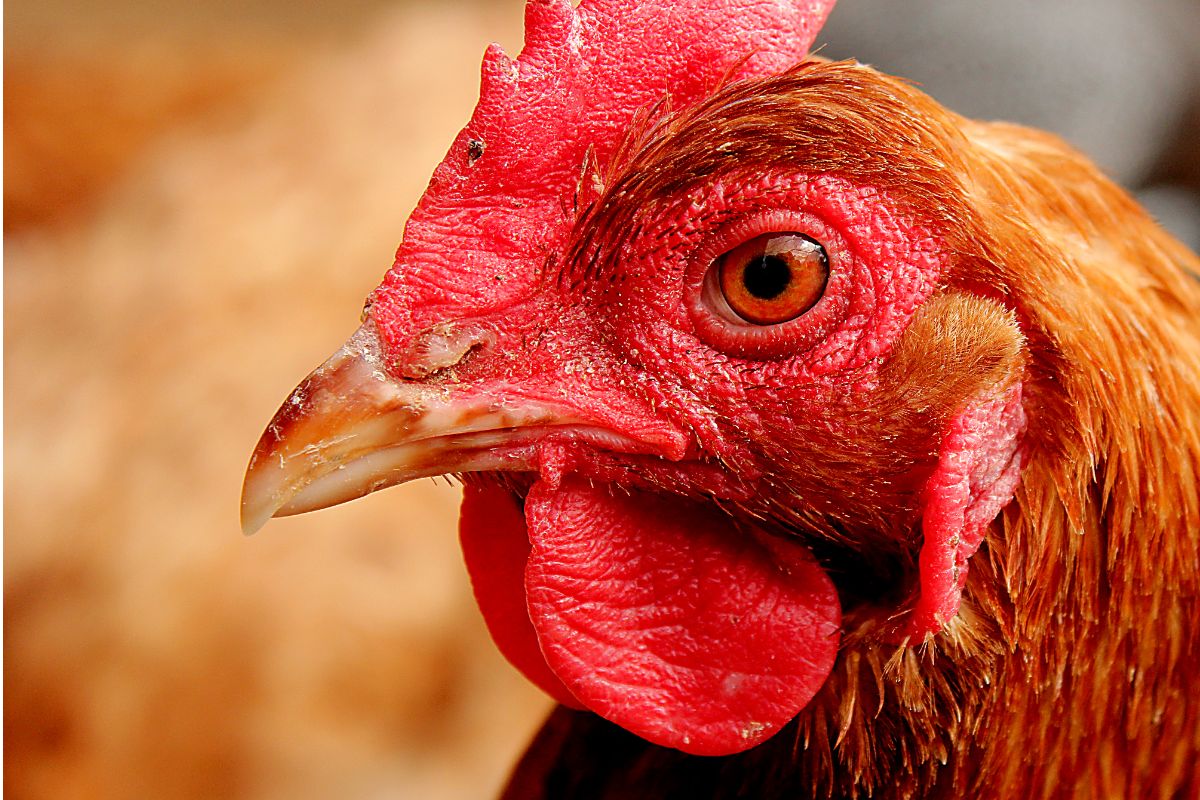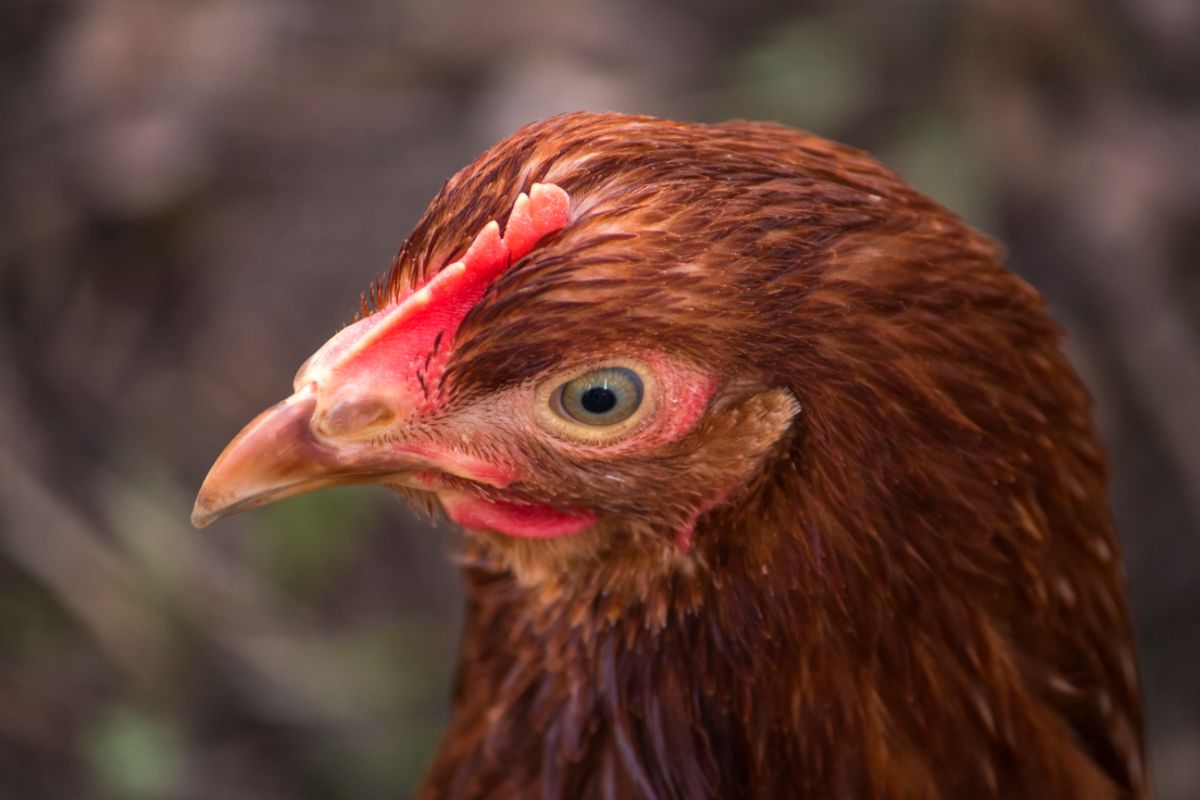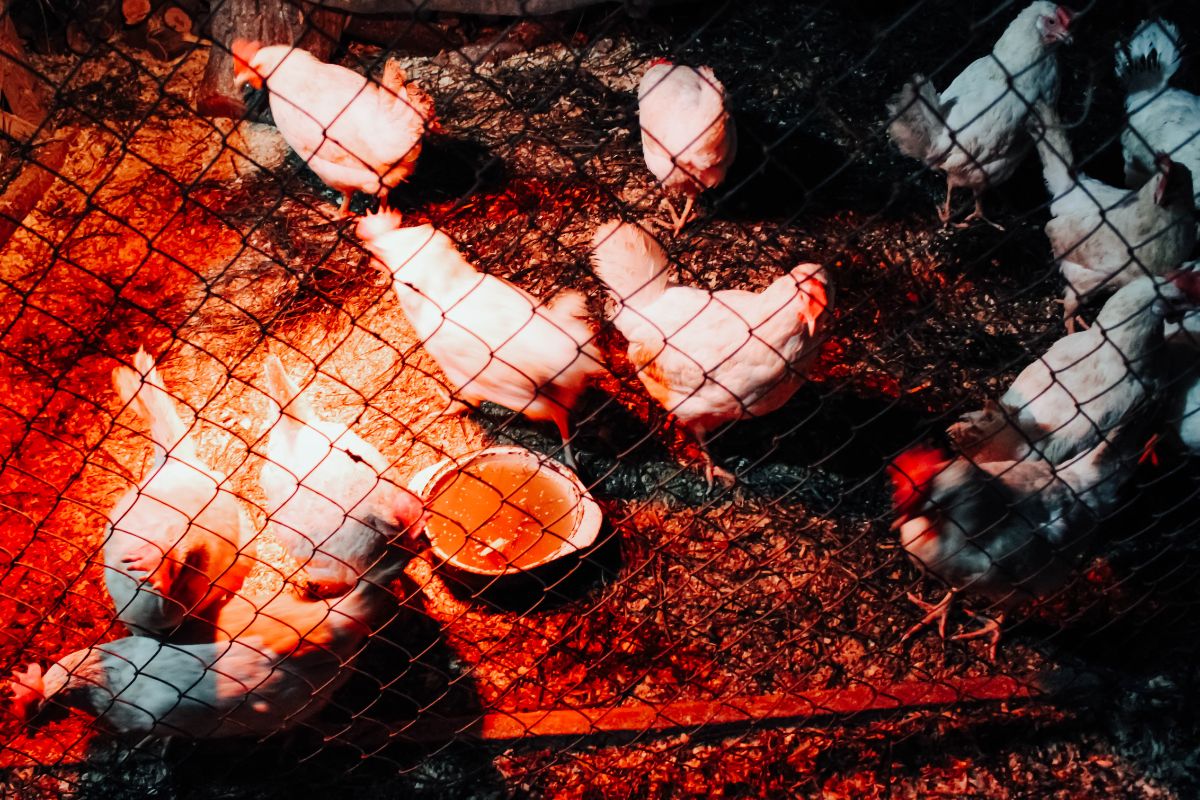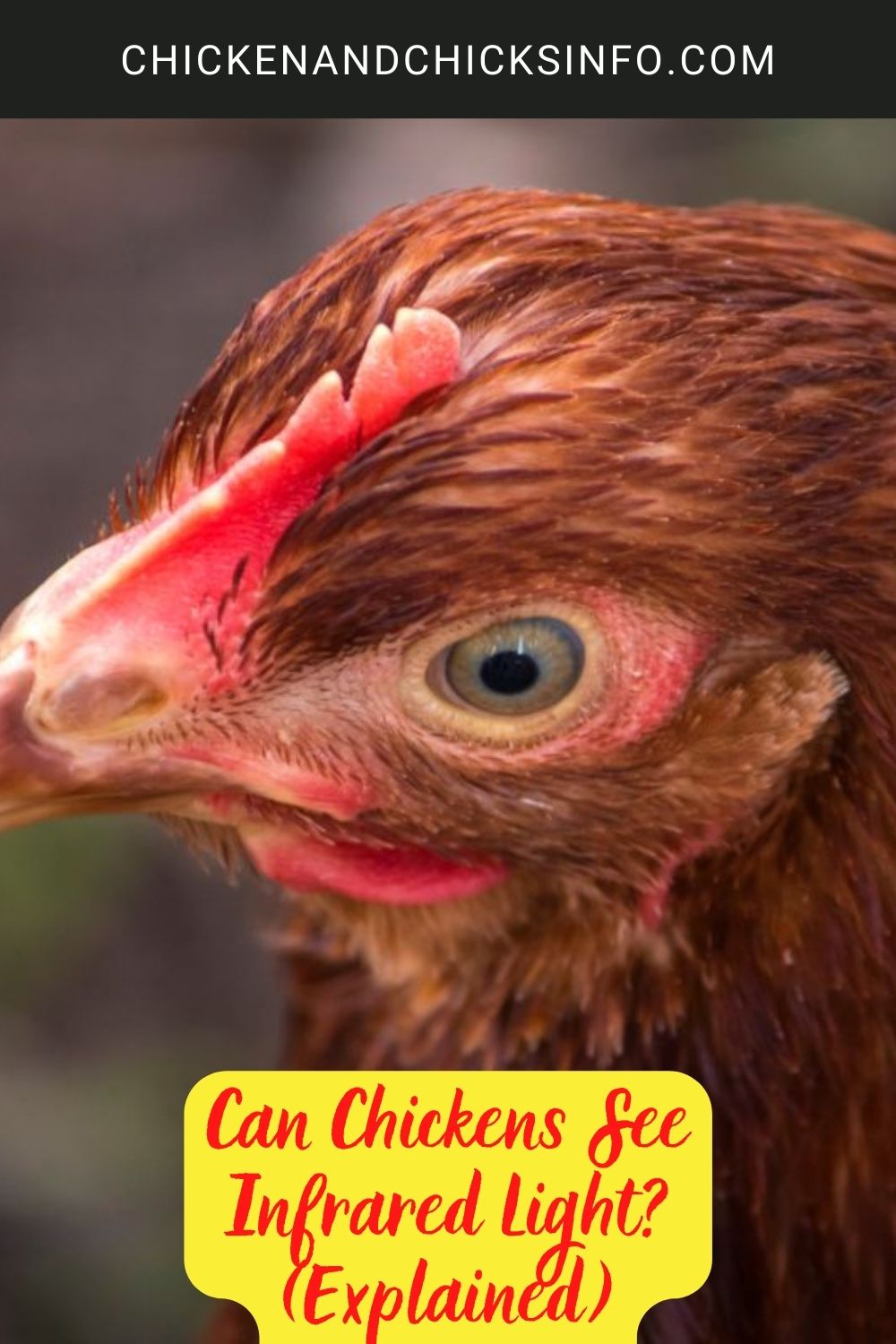
Chickens have very different visual acuity and color perceptions from us - they see the world differently.
But, can chickens see infrared light?
There are actually some interesting studies on the topic that state chickens can, in fact, see ultraviolet and infrared light waves.
Jump to:
Can Chickens See Infrared Light?
To better understand how chickens see, we need to first look at what kind of light spectrum they can see.
Chickens can see in the ultraviolet and infrared ranges, which is beyond what humans can see (analyzed in this study).
This means that they can see some colors that we cannot - such as ultraviolet light waves.
However, chickens cannot see as clearly as we can.
They have a higher number of cones in their eyes which allows them to see more colors, but they don't have the same level of detail as we do.
This is because chickens evolved to see in daylight, while humans evolved to see in low-light conditions.
Related - What color are chicken's eyes?
Can Chickens See the Color Red?

One question that is often asked is if chickens can see the color red.
Red is on the opposite end of the light spectrum from ultraviolet, so it would make sense that they cannot see it.
However, there are some studies that suggest chickens may be able to see a very muted form of red.
So, while they may not see the color as vividly as we do, they can still detect it to some degree.
We also know that chickens are what is known as tetrachromatic. This means they have 4 types of cones in their eyes, which are types of photoreceptor cells in the retina of the eye.
These four cones allow chickens to see red, blue, and green light, as well as ultraviolet light.
What Color Light Is Best for Chickens?
All of this raises an interesting thought, which color of light is best for chickens and their vision?
It is likely that chickens do better in natural light, as they have evolved to see in daylight.
So, a sunny day would be ideal for them, while artificial light or fluorescent light may not be as beneficial.
Chickens need daylight to lay eggs, and we know that both natural and artificial light can stimulate egg production.
Unfortunately, there are still a lot of commercial egg farming operations in the world where hens are caged all day and only get exposed to artificial light.
This doesn't mean only seeing artificial light is OK though, far from it!
Studies have shown that free-range chickens that are allowed to roam outdoors and enjoy natural sunlight are much healthier - and they lay healthier tastier eggs!
Free-range chickens' feathers are in better condition, they walk and move around better, have better digestive systems, and have higher quality meat.
There is also a general belief that red lighting has some benefits for laying hens:
Does Red Light Stimulate Egg Laying for Chickens?

While we know that chickens can see ultraviolet and infrared light, there is still some debate over if red light stimulates egg-laying for chickens.
I've seen egg-laying facilities using red lighting as they believe it's more effective than natural or white light for stimulating egg production.
Some people simply believe that red light has the same effect as natural sunlight on chickens and can stimulate egg production.
Others say that there is not enough evidence to support this claim.
Further research is needed to determine if red light does indeed stimulate egg-laying for chickens.
I read a few controlled studies from trusted sources, and they couldn't conclude that red lighting improved the number or the quality of eggs chickens in the study were laying.
There does seem to be some evidence that red lighting reduces stress though, so it appears as though there might be some benefits.
Related - Can chickens be color blind?
Do Chickens Like to Sleep in the Dark?
Another question that comes up a lot is if chickens like to sleep in the dark or if they are OK with the light being left on.
The answer to this is a little bit complicated, as it seems to depend on the individual chicken.
Some chickens do seem to prefer total darkness when they sleep, while others don't seem to mind being in a lit environment.
It's likely that older chickens prefer sleeping in the dark, while younger chickens are more adaptable.
So, it really depends on your particular flock and what makes them comfortable.
I can understand you might want some security lighting in your yard, but there shouldn't be any reason why you can't have your chicken's coop in darkness for them when they're sleeping.
In Summary
So, to answer the question posed in the title - Can Chickens See Infrared Light? - the answer is yes, they can see it to some degree.
They can also see ultraviolet light and the color red quite well.
What color of light is best for chickens is still up for debate, but it seems as though natural daylight is best.
If you're providing your chickens with a good quality of life, they should be OK with some artificial light too during the winter months.





